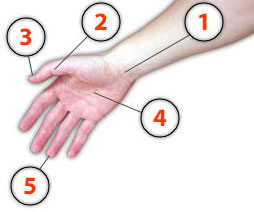You’ve just landed at the airport of an Arabic country, you’ve made it through customs,
Units of Measurements in Arabic


You’ve just landed at the airport of an Arabic country, you’ve made it through customs,

Our Ability to interact with each others and manage our relationships with peers depend considerably on our ability to decipher their emotions and feelings. Moods are part of our life and we should embrace them and manage them to our advantage. That’s why in this Arabic lesson we are going to learn about the different moods and emotions and how to describe them in Arabic.

Today’s post is a quick reminder for a previous article that we’ve listed about two years ago under the same title: Arabic Vocabulary: Job Titles and Occupations in Arabic. It’s a short list of some of the most common Jobs and Occupations in Arabic.

In this post, we will talk about the five senses (الحَواسُّ الخَمْسُ) of sight, smell, taste, touch, and hearing in Arabic. this post will also include information about the different body organs that our senses uses and some other useful information regarding this subject.

The post details the Arabic names for family members. “Usrah” (أسرة) refers to the small family (parents and children), while “‘Ailah” (عائلة) denotes the extended family but can be used for both. A spectrum of family terms is given, covering basic relationships like parents (Wālid/Wālidah) and children (Atfāl), to specifics like niece (Ibnatu Al-Akh/Ukht), fiance (Khatīb), and in-laws (Ḥamw, Ḥamāh, Nassīb, Nassībah).

Transportation Vocabulary in Arabic This Arabic lesson is about some of the most used Transportation

Air and Space in Arabic Today’s morning traffic was a little bit unusual in the

In today’s Arabic lesson, we are going to continue learning about the “human body parts

The Arabic face parts’ names In the previous post, we talked about the various human